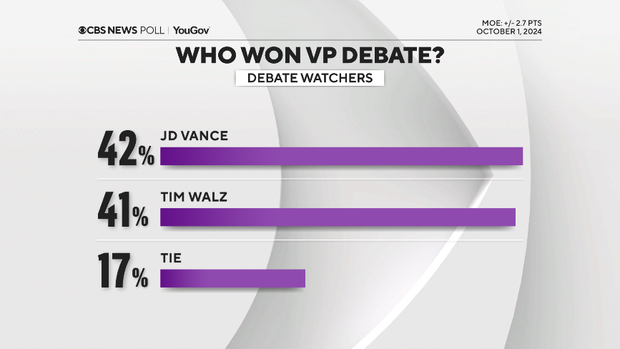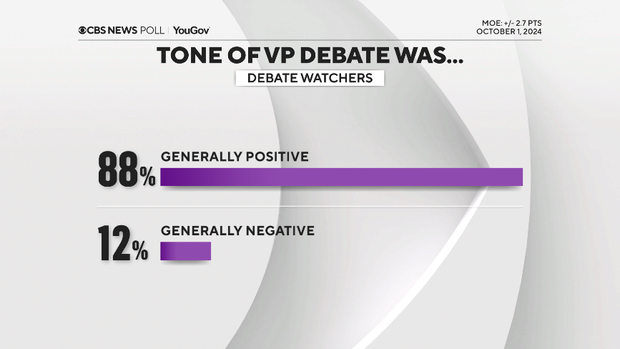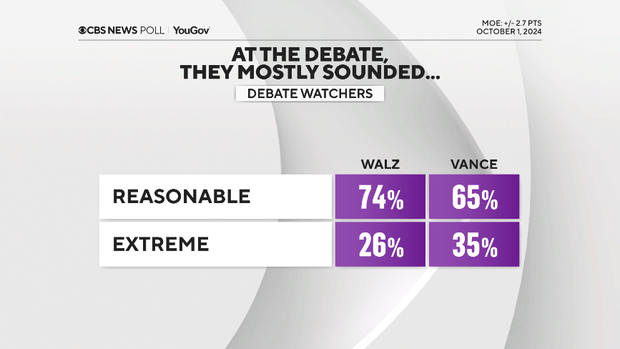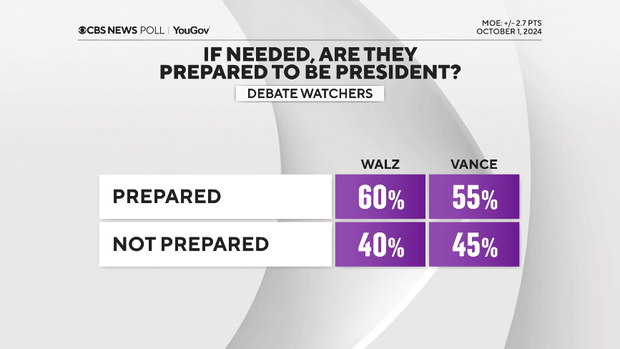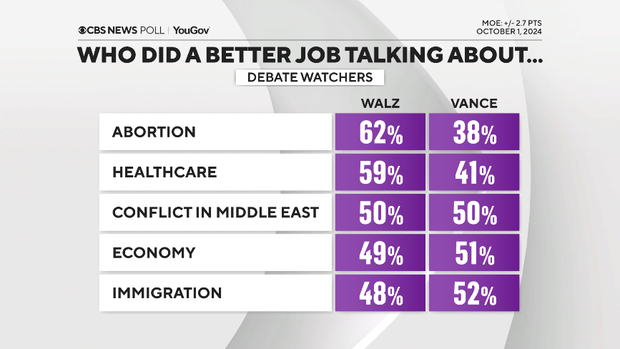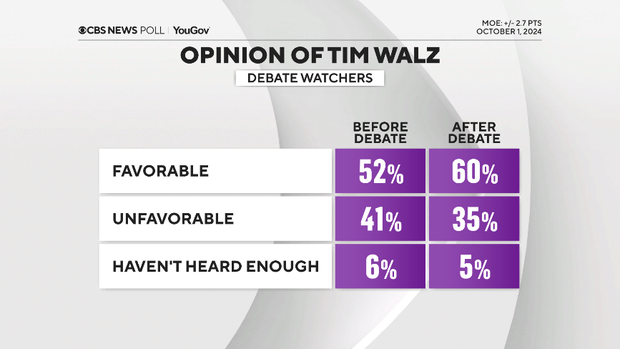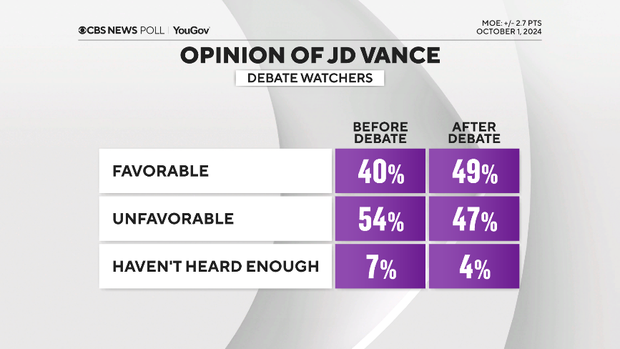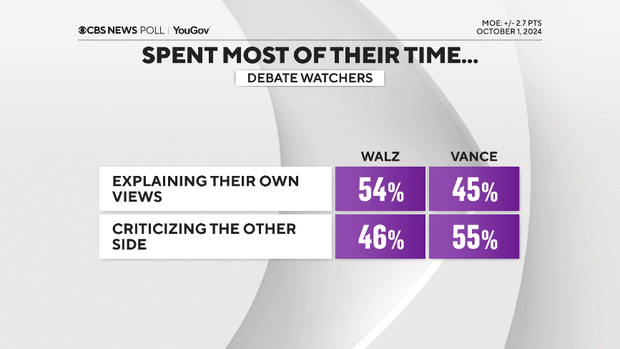First – and only chance – Vice Presidential Debate between Tim Walls And JD VanceVoters watching Tuesday night said it was almost Also appliesAnd the majority felt the tone of the discussion was positive.
Following the debate, CBS News surveyed voters across the country who reported watching it to get their reaction.
Who won the debate – Vance or Walls?
42 percent of debate viewers said Vance won the debate, while 41% thought Walls emerged victorious. Seventeen percent called the debate a tie.
Debate viewers were slightly more Democratic in their party affiliation than voters nationwide. Intervening in the discussionDemocrats were more enthusiastic about Walls than Republicans about Vance, perhaps explaining the Democratic tilt of tonight’s audience.
Both candidates sounded “fair” to the majority of tonight’s debate audience, rather than “radical.”
Both candidates claimed to be ready to be President of the United States. Most partisans felt only their party’s VP candidate was ready, while most independents said both were.
Vance and Walls on the issues
The candidates were even seen on some of the issues that came up in the debate, including the economy and conflicts in the Middle East. Walls was seen as the best talking point on health care and abortion, while Vance had the edge on immigration.
Comments by Vance and Walls after discussion
Both candidates improved their overall image with voters ahead of the debate. More debate viewers had a net-negative view of Vance before the debate, but after the debate, they had a slightly more favorable view of him than an unfavorable view.
While viewers felt the overall tone of the debate was positive, Vance was seen spending more time attacking Kamala Harris and Tim Walls than explaining her own points. Walls spent most of his time explaining his views to more voters.
This CBS News/YouGov poll is based on 1,630 interviews with voters who said they watched the vice presidential debate on Tuesday, October 1, 2024. Respondents were previously interviewed between September 27-30, 2024, to indicate whether they planned to watch the debate. , and if they are willing to be interviewed again after the discussion. The margin of error is +/- 2.7 points.

